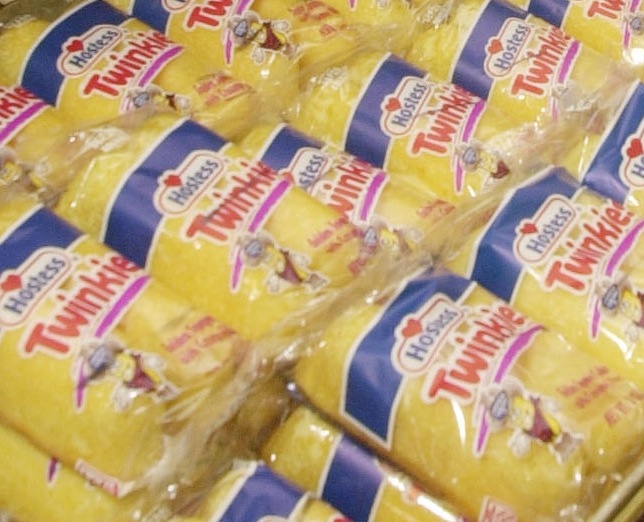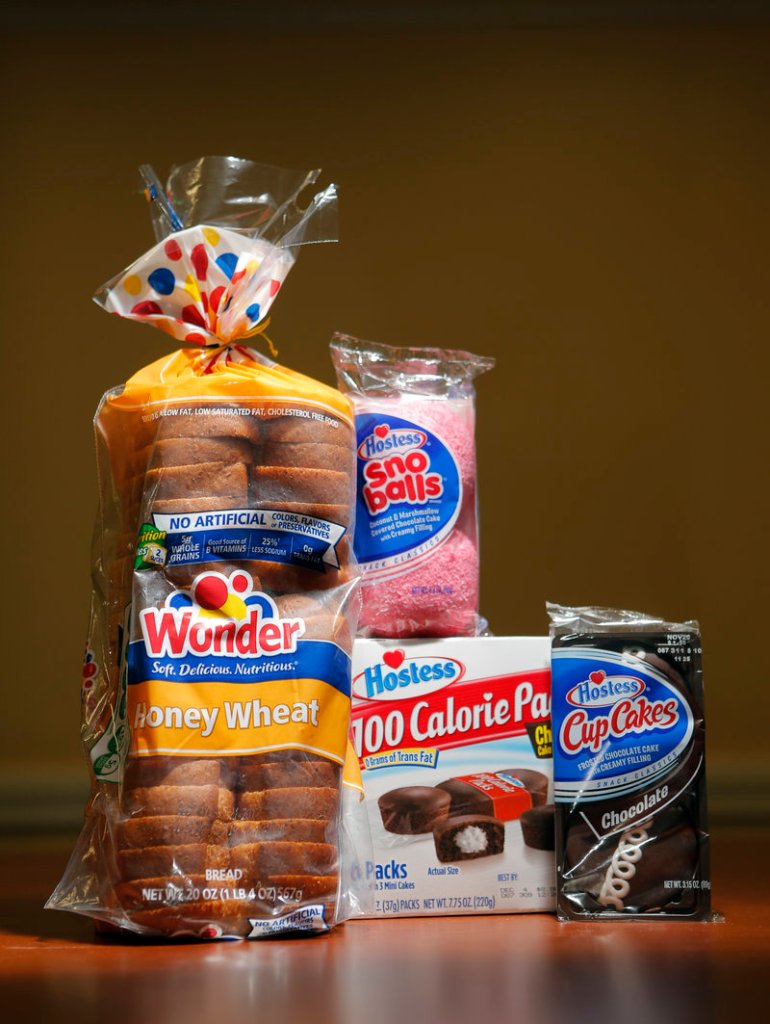They were spongy, cream-filled and indelibly American. For decades, the gustatory time capsules were stuffed into lunch boxes, desk drawers and the hungry mouths of schoolchildren across the country.
But as of Friday, Twinkies, the hallmark product of Hostess Brands Inc., are kaput.
The humble snack cake was 82 years old.
“I think it’s terrible,” said Dan Owril, 36, of Portland, as he strolled an aisle in Portland’s Whole Foods store with his two children, ages 4 and 1. “I don’t eat them, but I think they’re kind of an iconic American food. It’s kinda like Campbell’s soup.”
For many supermarket shoppers who were interviewed hours after Hostess shut its plants and ceased production, talk of the timeless snack brought back their childhood.
While a new owner could emerge and resuscitate the Twinkie and other Hostess products, it’s clear that consumers’ changing tastes and quest for healthier foods have rendered Hostess obsolete in the eyes of many shoppers.
Americans bought 36 million Twinkies in 2011, down 2 percent from 2010, according to The Wall Street Journal.
So would Owril allow his offspring to eat Twinkies?
“No. Not at all,” Owril said, perusing healthful, fruit-filled yogurts. “Never.”
Loaded with sugar and saturated fats, each Twinkie contains 150 calories. More than two dozen ingredients — some more easily pronounced than others — go into each treat, including red-flag substances like high fructose corn syrup, partially hydrogenated vegetable and animal shortening, and artificial flavorings.
Like the long shelf life of its products, much of the Hostess lineup remained fundamentally unchanged for years. While competitors switched up their sweets, the Hostess family was frozen in time.
Few tears were shed for the Twinkie on Friday in the University of Maine’s department of Food Science and Human Nutrition.
“We’re going to be more sorry for the jobs lost than for the actual products,” said Beth Calder, a food science specialist.
Leora Rabin, 46, of Yarmouth, who shopped at Whole Foods on Friday, said Hostess’ labor practices repulsed her more than its products.
“If my kids begged me, I definitely wouldn’t buy (them),” Rabin said.
The last week’s labor strike capped a tumultuous decade for Hostess, which was pushed over the brink by frequent executive turnover, heavy debt load and poor business decisions.
Surely unhelpful, too, was the clear link made by medical science between long-term food choices and overall health.
“I think people are more concerned about what is in their food,” said Joan Lavery-McLaughlin, a nutritionist who practices in Falmouth and in Mercy Hospital’s Oncology Department, where she urges cancer patients to return to plant-based diets. “I think (consumers) are pushing back against the ingredients that don’t do much good in your body. There are better choices to make.”
Nevertheless, Friday’s announcement spurred immediate hoarding — and attempts at profiteering. On eBay, boxes of 10 Twinkies were selling for as much as $25.
At the Hannaford supermarket on Forest Avenue in Portland, the end of the Twinkie era appeared to come early. The space where the Twinkies were stocked was empty, perhaps because of the scarcity of the soon-to-be-defunct product.
Lamenting the closure of Hostess, one shopper, Gregory Ham, 67, expressed a slight sense of loss.
“It’s just like everything else,” he said, “dwindling away.”
Staff Writer Matt Byrne can be contacted at 791-6303 or at:
mbyrne@mainetoday.com
Send questions/comments to the editors.





Comments are no longer available on this story